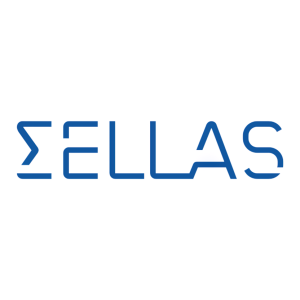SELLAS Unveils Breakthrough Preclinical Data Highlighting Efficacy of SLS009 in TP53 Mutated AML at the 2025 AACR Conference
Rhea-AI Summary
SELLAS Life Sciences Group (NASDAQ: SLS) has presented breakthrough preclinical data for SLS009 in treating TP53 mutated Acute Myeloid Leukemia (AML) at the 2025 AACR Conference. The study shows that SLS009, a selective CDK9 inhibitor, reduced TP53-mutated leukemia cells by up to 97% in combination with azacitidine-venetoclax, and 80% as monotherapy.
In ongoing Phase 2 trials, patients receiving 30mg of SLS009 BIW achieved a median overall survival of 8.8 months, significantly exceeding the historical benchmark of 2.5 months. Response rates were notable across various mutations: 67% for ASXL1, 60% for RUNX1, and 33% for TP53.
Positive
- Preclinical data shows 97% reduction in TP53-mutated leukemia cells with combination therapy
- Phase 2 trial shows 8.8 months median overall survival, significantly above 2.5 months benchmark
- Strong response rates in mutations: 67% ASXL1, 60% RUNX1
- Demonstrated ability to overcome TP53-driven resistance
Negative
- 33% response rate in TP53 mutation patients (1 out of 3)
- Still in early clinical development phase
- Small patient sample size in mutation response data
News Market Reaction 1 Alert
On the day this news was published, SLS gained 0.71%, reflecting a mild positive market reaction.
Data tracked by StockTitan Argus on the day of publication.
New Data Suggest SLS009 (tambiciclib) May Overcome Resistance to Azacitidine-Venetoclax Regimen and Trigger Apoptosis of TP53 Mutated AML Cells
NEW YORK, April 28, 2025 (GLOBE NEWSWIRE) -- SELLAS Life Sciences Group, Inc. (NASDAQ: SLS) (“SELLAS” or the “Company”), a late-stage clinical biopharmaceutical company focused on the development of novel therapies for a broad range of cancer indications, today announced that preclinical efficacy of SLS009 in TP53 mutated Acute Myeloid Leukemia (AML) cells are being presented in a poster session at the American Association for Cancer Research (AACR) taking place from April 25th – 30th at McCormick Place Convention Center, Chicago, IL.
Patients with TP53–mutated AML continue to face extremely poor outcomes, even with intensive chemotherapy or the addition of stem cell transplantation. Preclinical data suggest that SLS009, a highly selective CDK9 inhibitor, can induce apoptosis downstream of p53 by targeting critical proteins such as MCL-1 and survivin, regardless of p53 status. Immunoblot analysis reveals near-complete removal of these proteins in treated cells within 8 hours of exposure to SLS009. Furthermore, the treatment reduced TP53-mutated leukemia cell populations by up to
“These findings are an exciting step forward in addressing one of the most challenging subsets of AML,” said Angelos Stergiou, MD, ScD h.c., President and Chief Executive Officer of SELLAS. “The ability of SLS009 to overcome TP-53 driven resistance in preclinical models, combined with the positive data we have seen in our ongoing Phase 2 AML program, including a response in a patient with a TP53 mutation, gives us hope that we may one day offer an effective therapeutic option to patients with AML who have long been underserved.”
SLS009 is currently in Phase 2 clinical trials in patients with relapsed or refractory (r/r) AML following venetoclax-based regimens, including patients with TP53-mutated leukemia. Recently announced data revealed that r/r AML patients receiving 30 mg of SLS009 BIW achieved a mOS of 8.8 months for all patients, while the mOS in AML myelodysplasia-related-changes (MRC) patients reached 8.9 months - far surpassing the historical benchmark of 2.5 months. Among patients with mutation ASXL1, 4/6 (
“Over the past decade we’ve seen significant progress in the treatment of AML, particularly with the introduction of the venetoclax/azacitidine regimen, the use of targeted agents, and safer application of haploidentical stem cell transplants,” said Dr Phillip Amrein, MD, Clinical Investigator, Massachusetts General Hospital, Assistant Professor of Medicine Harvard Medical School, the senior author of the study. “Yet, leukemias characterized by TP53 remain a major area of unmet need, with poor outcomes even with bone marrow transplantation. The preclinical findings suggest that CDK9 inhibition might have the potential to overcome this resistance and restore sensitivity to existing therapies, offering a promising new path forward for high-risk patient populations.”
Poster presentation details:
Title: CDK9 inhibition enhances apoptosis of TP53 mutated AML when combined with standard chemotherapy
Session Date and Time: Monday, April 28, 20025, 9:00 AM to 12:00 noon
Session Title: CDK9 inhibition enhances apoptosis of TP53 mutated AML when combined with standard chemotherapy
Location: Poster Section 17
Poster Board #: 1626
The poster will be available on SELLAS websites following the session.
SLS009 is currently being investigated in a Phase 2 open-label, single-arm, multi-center study designed to evaluate the safety, tolerability, and efficacy of SLS009 in combination with venetoclax and azacitidine, including AML patients with ASXL1 mutations. Initial clinical safety and efficacy data are available. In addition, the study aims to identify biomarkers for the target patient population and enrichment for further trials. For more information on the study, visit clinicaltrial.gov identifier NCT04588922.
About SELLAS Life Sciences Group, Inc.
SELLAS is a late-stage clinical biopharmaceutical company focused on the development of novel therapeutics for a broad range of cancer indications. SELLAS’ lead product candidate, GPS, is licensed from Memorial Sloan Kettering Cancer Center and targets the WT1 protein, which is present in an array of tumor types. GPS has the potential as a monotherapy and combination with other therapies to address a broad spectrum of hematologic malignancies and solid tumor indications. The Company is also developing SLS009 (tambiciclib) - potentially the first and best-in-class differentiated small molecule CDK9 inhibitor with reduced toxicity and increased potency compared to other CDK9 inhibitors. Data suggests that SLS009 demonstrated a high response rate in AML patients with unfavorable prognostic factors including ASXL1 mutation, commonly associated with poor prognosis in various myeloid diseases. For more information on SELLAS, please visit www.sellaslifesciences.com.
Forward-Looking Statements
This press release contains forward-looking statements. All statements other than statements of historical facts are “forward-looking statements,” including those relating to future events. In some cases, forward-looking statements can be identified by terminology such as “plan,” “expect,” “anticipate,” “may,” “might,” “will,” “should,” “project,” “believe,” “estimate,” “predict,” “potential,” “intend,” or “continue” and other words or terms of similar meaning. These statements include, without limitation, statements related to the GPS clinical development program, including the REGAL study and the timing of future milestones related thereto. These forward-looking statements are based on current plans, objectives, estimates, expectations, and intentions, and inherently involve significant risks and uncertainties. Actual results and the timing of events could differ materially from those anticipated in such forward-looking statements as a result of these risks and uncertainties, which include, without limitation, risks and uncertainties with oncology product development and clinical success thereof, the uncertainty of regulatory approval, and other risks and uncertainties affecting SELLAS and its development programs as set forth under the caption “Risk Factors” in SELLAS’ Annual Report on Form 10-K filed on March 20, 2025 and in its other SEC filings. Other risks and uncertainties of which SELLAS is not currently aware may also affect SELLAS’ forward-looking statements and may cause actual results and the timing of events to differ materially from those anticipated. The forward-looking statements herein are made only as of the date hereof. SELLAS undertakes no obligation to update or supplement any forward-looking statements to reflect actual results, new information, future events, changes in its expectations, or other circumstances that exist after the date as of which the forward-looking statements were made.
Investor Contact
Bruce Mackle
Managing Director
LifeSci Advisors, LLC








